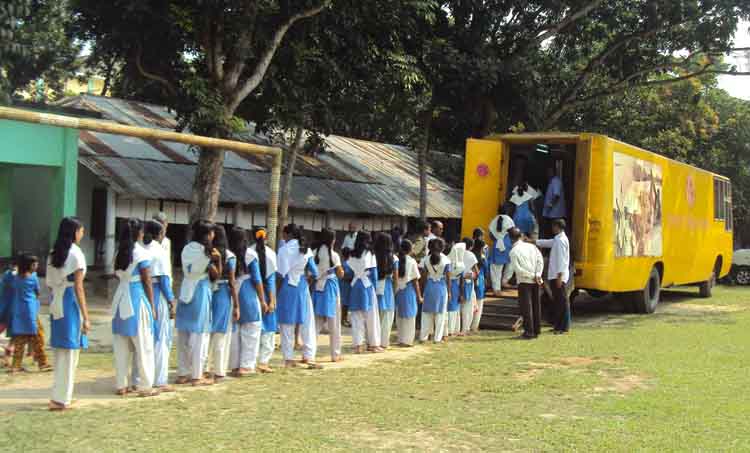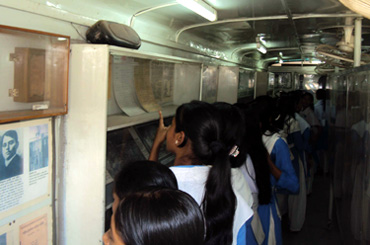| |||||||||
| |||||||||
| CULTURAL SUSTAINABILITY | |||||||||
| Oral History Project with a Difference | |||||||||
|
| |||||||||
|
The Liberation War Museum (LWM) in Bangladesh has started its journey in 1996, to memorialize the glorious struggle of independence of 1971, an event that happened 25 years ago. The museum has been established by private initiative, but the strong support and involvement of the community made it a peoples’ museum. LWM has grown over the years and initiated various activities. One of its major programme is to bring students to the museum. It also has a mobile museum, a long-haul carrier converted into a mini-museum that reaches out to educational institutions in the far-away places of the country. | |||||||||
|
| |||||||||
|
The enthusiasm seen among members of the new generation in their encounter with history has inspired LWM to plan ways to harness this potential in a more effective way. The oral history project has been developed on the basis of such experience. The programme has been introduced in 2007 whereby at the end of the visit programme the students are told that the glimpse of history has inspired them but the events happened long before they were even born. Even then they can play an effective role in retrieving this history as they have senior members in their family or in the community who were witnesses of history. The students are encouraged to select one of them, ask them about their experiences during the liberation war and write down those accounts. They are told not to be bothered about their handwriting or grammatical mistakes but should try to be as authentic as possible. The process has been made very simple and do-able and the students submit those write-ups to the network teacher who volunteer to work with LWM on behalf of the institution. The network teacher collects and sends those write-ups to LWM. Upon receipt of the accounts, LWM sends a personal letter of acknowledgement to the students. The museum also made a promise that each and every write-up would be properly preserved and if the students came to the museum even after 10 or 15 years, they would be able to see the submission. LWM also publishes a quarterly list of submissions with the names of the students and the person interviewed and sends copies to respective institutions. The write-ups are also composed and spiral-bound copies of the print-out are kept in the museum. One copy is also send to the respective institutions so that students can get exposure to the accounts written by others which collectively reflect the local history. A simple appeal from LWM has been responded greatly by the members of the new generation and they came up with rich treasures of history. So far LWM has collected about 18,000 of such eye-witness accounts and is planning to use this resource in various other ways. The collection, known as “Archives of Memory”, has proved to be a great treasure of historical materials which are not historical documents as such but can be of use to get the deeper understanding of history. LWM has taken history to the new generation and the younger people have also enriched the historical collection of LWM by their own contribution. This collective and collaborative effort has opened new vistas in the process of memorialization, the challenge that every museum faces. Read the full paper by Mofidul Hoque: | |||||||||
| |||||||||
| Back to Cultural Capital Spring 2012 main page... | |||||||||
CURRENT ISSUE | PRINT ISSUE | ARCHIVE | CONTACT | SUBSCRIBE | |||||||||
Copyright © Lord Cultural Resources, www.lord.ca. All Rights Reserved. Lord Cultural Resources values your privacy and does not sell or trade email addresses. |


 By Mofidul Hoque,
By Mofidul Hoque,

